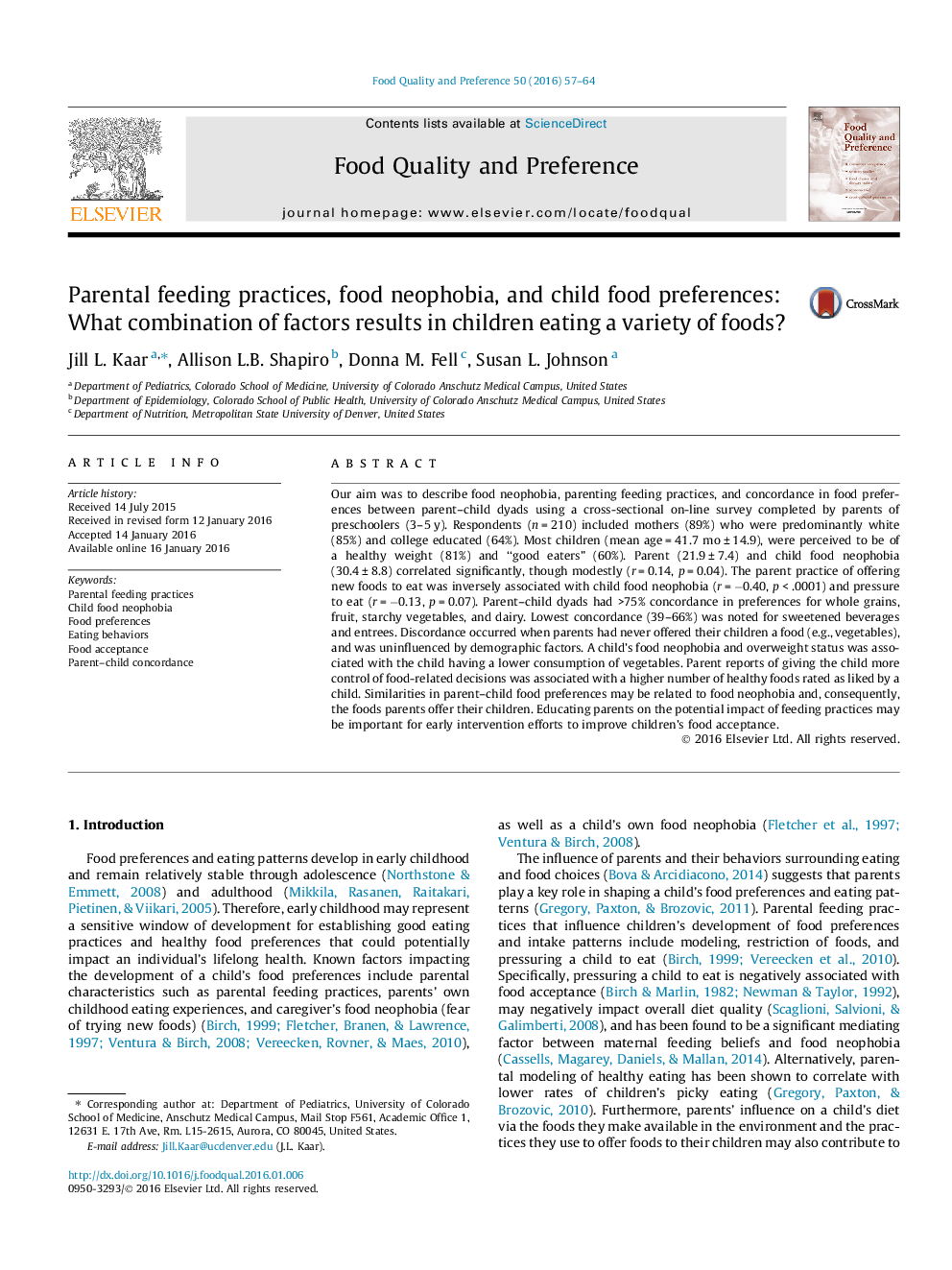| کد مقاله | کد نشریه | سال انتشار | مقاله انگلیسی | نسخه تمام متن |
|---|---|---|---|---|
| 6261101 | 1613149 | 2016 | 8 صفحه PDF | دانلود رایگان |
- Offering a child new foods may reduce their fear of trying new foods.
- Urging a child to eat potentially could result in increased food neophobia.
- Children with high neophobia scores reported liking fewer numbers of foods.
- Child having more control of food-decisions associated with liking healthy foods.
Our aim was to describe food neophobia, parenting feeding practices, and concordance in food preferences between parent-child dyads using a cross-sectional on-line survey completed by parents of preschoolers (3-5 y). Respondents (n = 210) included mothers (89%) who were predominantly white (85%) and college educated (64%). Most children (mean age = 41.7 mo ± 14.9), were perceived to be of a healthy weight (81%) and “good eaters” (60%). Parent (21.9 ± 7.4) and child food neophobia (30.4 ± 8.8) correlated significantly, though modestly (r = 0.14, p = 0.04). The parent practice of offering new foods to eat was inversely associated with child food neophobia (r = â0.40, p < .0001) and pressure to eat (r = â0.13, p = 0.07). Parent-child dyads had >75% concordance in preferences for whole grains, fruit, starchy vegetables, and dairy. Lowest concordance (39-66%) was noted for sweetened beverages and entrees. Discordance occurred when parents had never offered their children a food (e.g., vegetables), and was uninfluenced by demographic factors. A child's food neophobia and overweight status was associated with the child having a lower consumption of vegetables. Parent reports of giving the child more control of food-related decisions was associated with a higher number of healthy foods rated as liked by a child. Similarities in parent-child food preferences may be related to food neophobia and, consequently, the foods parents offer their children. Educating parents on the potential impact of feeding practices may be important for early intervention efforts to improve children's food acceptance.
Journal: Food Quality and Preference - Volume 50, June 2016, Pages 57-64
